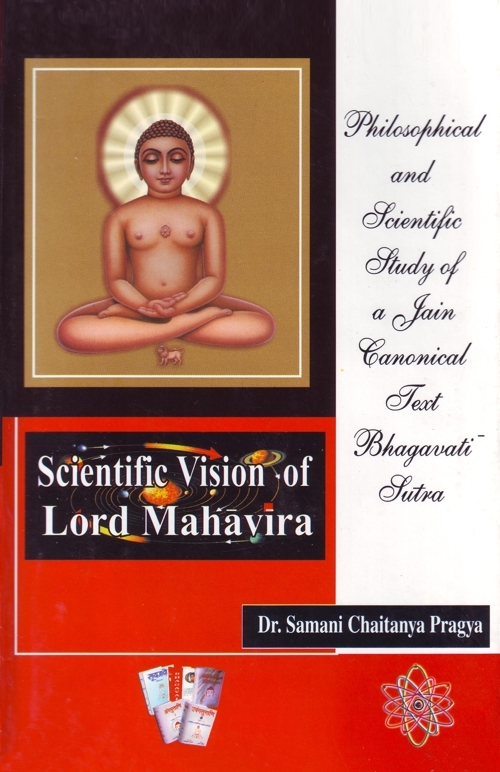We can also discuss this problem under the mind-body relationship, which have haunted philosophers as well as psychologists since ancient times.
We find two words 'Psyche' (citta) and 'Mind' (manas) as synonyms. It is only the Jain philosophy which regards psyche and mind as two different principles. The former is sentient and while latter is non-sentient.[104] In common parlance, we use 'mind' for 'psyche' considering it as sentient. Thus, in some regards the word 'mind' stands for sentient and the word 'body' stands for non-sentient. Now the problem is how mind and body influence each other and what is the exact nature of their mutual relation. The Jain philosophers are clearer about the view that the soul in its worldly existence is not absolutely different from the material body, though in its true nature it is pure unadulterated sentience. They have mutual relation from the time immemorial[105] and therefore interaction with influence upon each other.
In Western philosophy, the subject of mind-body relation has been a perennial problem. Descartes added a new meaning to the concept of mind. Before him, the philosophers accepted mind and body as two aspects of the same principle, but he considered mind as distinct from the body. Descartes accepted the independent existence of both. Body is the substance which is the immediate subject of local extension, while mind is the immediate resistance of thought according to Descartes. The influence of mind on body and body on mind occur, according to him, through a little gland situated at the base of the brain' (the pineal gland).[106] Now, according to modern medical science or physiology, it is the hypothalamus through which communication between the limbic system and the brain takes place. Hypothalamus is believed to be the junction of neuro-endocrine system.
For Spinoza, the mind is a finite modification of God, considered under the attribute of thought, and the body is the very same modification of God, considered under the attribute of extension. Mind and body, thus, are the same thing viewed under two different aspects, and both are modifications of the one and same substance, i.e. God. The body is always influenced by the external objects and appears to have new forms without stop. The mind is conversant with these changes. The mind knows the influences of the external objects from the body exactly as they appear and not as they really are. This proves that the body does not influence the mind and vice-versa.
If the difference of soul and body is granted, their union can be explained, according to Leibniz, without the vulgar hypothesis of influence, which cannot be understood, and without the hypothesis of the occasional cause, which calls in a God from the machine(Deus ex machina). For, God has from the beginning fashioned the soul as well as body, with so much wisdom and so much artifice, that from the first constitution or concept itself of either one, everything that happens in the one corresponds perfectly to everything that happens in the other(Pre-established Harmony). Leibniz called this 'the hypothesis of concomitance'. This is true in all substances of the whole universe, but it is not perceptible in all, as it is in the case of mind and body.
 Dr. Samani Chaitanya Pragya
Dr. Samani Chaitanya Pragya

